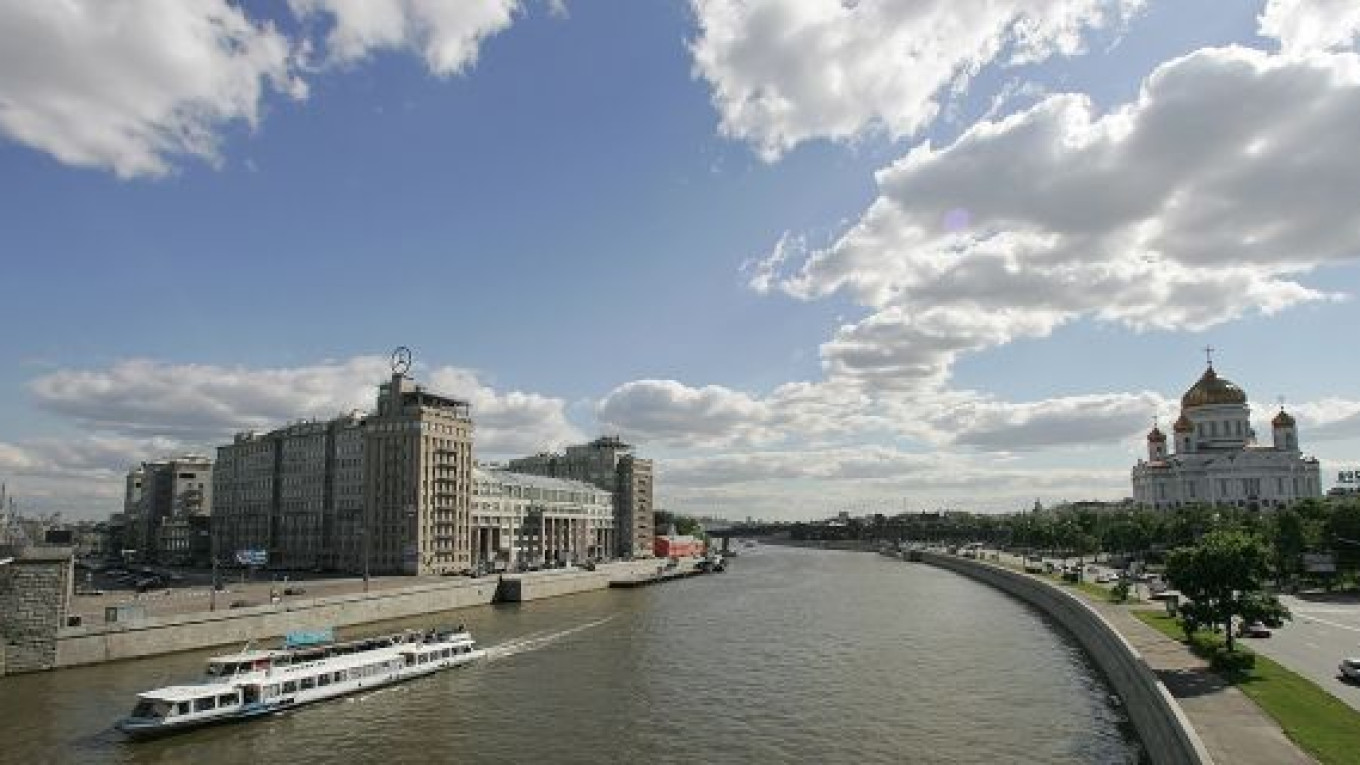It started two years ago as an ordinary neighbor's quarrel.
One complained that the other had contaminated her apartment while renovating his residence in the prestigious House on the Embankment in downtown Moscow.
Yet the petty squabble has developed into a highly contentious court case involving the patriarch of the Russian Orthodox Church and a former Cabinet minister who occupied Vladimir Putin's inner circle and became a priest after leaving office.
Yury Shevchenko, 65, a renowned surgeon and former health minister in Vladimir Putin's first government, is locked in a court battle with the custodian of a luxury apartment belonging to Patriarch Kirill, the powerful head of the Russian Orthodox Church.
The plaintiff is Lidia Leonova, the registered owner of the apartment. She alleges that dust from remodeling work Shevchenko was doing in the apartment above ruined her home and the expensive books it contained.
She is seeking 20 million rubles (about $6 million) in damages.
Experts who inspected Leonova's apartment say the dust contained hazardous substances that could cause lethal diseases.
A court previously ordered Shevchenko and his family to pay damages, and relatives of Shevchenko said they paid the court-imposed penalty earlier this week.
"The money has been transferred to an account, and Shevchenko can't get it back," attorney Irina Boiko said.
She asked the court to close the case. But Leonova's lawyer, Yelena Zabralova, asked the court to postpone its decision until her client receives the money.
Proceedings are expected to resume Friday.
While the patriarch is not involved in the case against Shevchenko, media reports have named him as the owner of the apartment.
That point has been raised by Shevchenko's lawyers because a monk can't own property, according to church rules.
Ironically, Shevchenko himself became a clergyman. In 2009, he was ordained as Father Georgy and now serves in a church belonging to the Moscow-based heart surgery center, where he is chairman.
A native of St. Petersburg, Shevchenko maintained close ties with Anatoly Sobchak, the city's former mayor and Putin's political mentor.
In 1996, Shevchenko, who at that time headed a military-run hospital in St. Petersburg, ordered medics to transport Sobchak to Paris for a heart operation.
Russian media reported that it was a rescue attempt for Sobchak, who was under investigation for charges of abusing office.
Shevchenko's performance in the ministerial post was criticized by leading Russian doctors, including Leonid Roshal, who accused him of creating his own empire within the health ministry using state funds.
But the case of the doctor-turned-priest, who is battling cancer, has attracted sympathy from bloggers.
Some of them even characterized the dust in Kirill's apartment as "golden," referring to the high-estimated value of the furniture and collection of books.
The campaign has further tarnished Kirill's image. He has already been under intense media scrutiny because of embarrassing incidents involving his luxury Breguet watch.
Some commentators say the apartment story has been blown out of proportion in response to the church's reaction to an unauthorized concert by feminist band Pussy Riot inside the Christ the Savior Cathedral in February.
"By expressing his solidarity with Putin, [Kirill] became a center of [liberal] bloggers' attention," said Olga Mefodyeva, a Center for Political Technologies analyst. "If it were not watches, then it would be a story with apartments."
Some bloggers have pointed to the fact that Leonova is being represented by Zabralova, who helped defend Putin in a court case filed by opposition leaders Boris Nemtsov.
Mefodyeva said that although the patriarch and Shevchenko are Putin proteges, the public outcry surrounding the case is not the work of a "monolithic team."
Alexei Mukhin, head of the Center for Political Information, said the media campaign against Kirill might have been orchestrated by opponents of the controversial "gay propaganda" bill passed in St. Petersburg in March.
The Orthodox Church sees homosexuality as sinful and has openly backed the bill.
Some experts, however, stressed that the story of the patriarch's apartment had also been highly publicized by the St. Petersburg-based Rosbalt agency, which has been openly supportive of Shevchenko.
In an effort to distance himself from the negative publicity, Kirill told Kremlin-connected television pundit Vladimir Solovyov that the apartment was donated to him by former Moscow Mayor Yury Luzhkov's administration and that he only kept his library inside.
Solovyov told listeners that Kirill is not trying to take over Shevchenko's flat, just seeking to repair damages.
Boiko told the Zamoskvoretsky Court this week that Shevchenko's family is "suffering hard times" because of the legal battle.
Shevchenko didn't comment publicly about the case. But his son Yury said that although Kirill didn't try to influence the case, the court hadn't look at things objectively.
Boiko also said something seemed amiss to her.
"This was not my first time at a trial like this," she said. "But I still wonder when watching such an injustice."
A Message from The Moscow Times:
Dear readers,
We are facing unprecedented challenges. Russia's Prosecutor General's Office has designated The Moscow Times as an "undesirable" organization, criminalizing our work and putting our staff at risk of prosecution. This follows our earlier unjust labeling as a "foreign agent."
These actions are direct attempts to silence independent journalism in Russia. The authorities claim our work "discredits the decisions of the Russian leadership." We see things differently: we strive to provide accurate, unbiased reporting on Russia.
We, the journalists of The Moscow Times, refuse to be silenced. But to continue our work, we need your help.
Your support, no matter how small, makes a world of difference. If you can, please support us monthly starting from just $2. It's quick to set up, and every contribution makes a significant impact.
By supporting The Moscow Times, you're defending open, independent journalism in the face of repression. Thank you for standing with us.
Remind me later.


